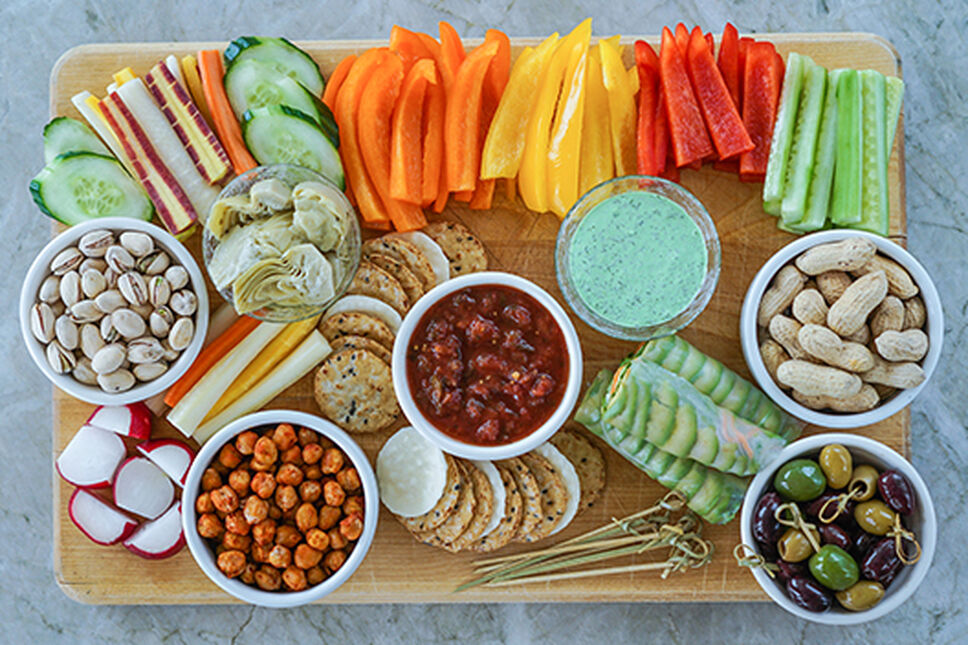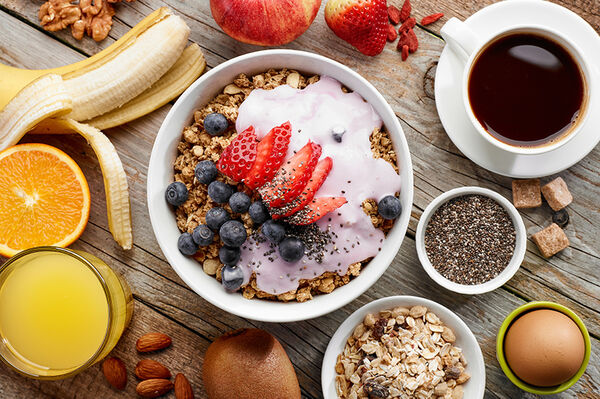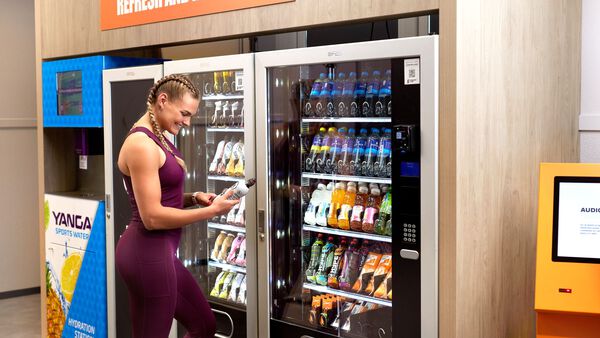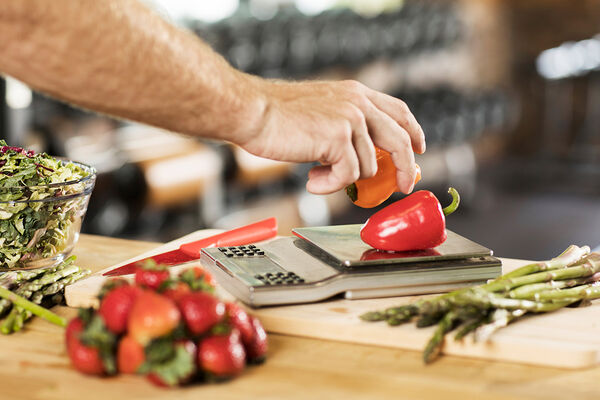Why are snacks important?
Snacks may have a bad reputation due to popular belief but they can actually be beneficial to your health. They can give you energy in between meals and help you stay focused and productive. They can also help stabilise your blood sugar levels, thus reducing cravings, and keep you feeling satiated through the day, so that you don’t overeat at your next meal. Moreover, healthy snacks allow you to increase your nutrient intake: vitamins, fibres, protein, carbs, healthy fats… So don’t miss out on them!
What makes a healthy snack?
The ideal snack should contain a combination of nutrients: fibre, protein, healthy fats, carbs… These nutrients will help you feel full and energised for longer. Nutritious wholefoods like nuts, fruits and vegetables can make great snacks, because they are packed with vitamins, minerals and antioxidants, which are essential to your body. For example, vegetables like carrot and celery sticks, cherry tomatoes, radishes, cucumber or bell pepper slices can be nice and refreshing to snack on. As for fruits, you have a lot of choice: apples, pears, berries, clementines, and so many more. You can also have dried fruits like cranberries, raisins, apricots… For a protein-rich snack, you can have a handful of nuts, nut butter, roasted chickpeas, Greek yogurt, cheese…
When and how often should you snack?
How often you snack can vary based on your activity level and meal size. In general, we tend to feel hungry three to four hours after having a meal, which would be a good time to have a snack before your next meal. Make sure to listen to your hunger cues, and snack when you are really hungry, not just when you feel bored or stressed.
You can also have a snack after your workout to replenish your energy levels. Protein intake is important pre- and post-workout to support muscle growth. If you would like to learn more about protein, be sure to check out the learning center of our partner NXT level.
How much food should you snack on
When it comes to snacks, portion sizes really matter! Remember, you are snacking, not having an entire meal. The average snack should be between 200 and 300 calories, and can go up to 500 for very active people. To avoid overeating, instead of eating your snacks straight from the bag, you can prepare a serving size and put the bag away.
Tips & tricks for healthy snacking
- Prepare your healthy snacks in advance, so that you have them ready and available as soon as you feel hungry: for example, you can peel and cut vegetable slices or sticks and keep them in a container in your fridge for 2 to 3 days.
- When you are out and about, make sure you have healthy snacks with you so that you don’t give in to junk food cravings. Before leaving the house, you can put fruits, bags of nuts or protein bars in your bag and carry them with you in case you need them during the day, whether you’re at work, at school, at the gym or simply on the go.
- When you are snacking, do so mindfully. It can be easy to just snack endlessly while you are working on your computer or watching your favourite TV show, but this might result in you overeating. Instead, try to focus on the food you are having, and stop eating once you have had your portion size and feel satiated.
- Avoid going grocery shopping when you are hungry, which may push you to buy unhealthy snack foods. You could instead prepare a list of healthy snacks that you need to buy and try to stick to your list once you are in the shop.
- Make sure you are adequately hydrated throughout the day. Sometimes, we confuse thirst and hunger signals. You should also drink more water after any physical activity. So sip on that water bottle during the day to stay hydrated and in top shape!
Snacks can be an integral part of a healthy diet if you choose them well. Remember that your meals should provide you with all the nutrients you need, but that snacks can also help you get a nutritional boost during your day. There are plenty of options for delicious, healthy snacks that you can have on the go. So pick your favourite ones and enjoy!




